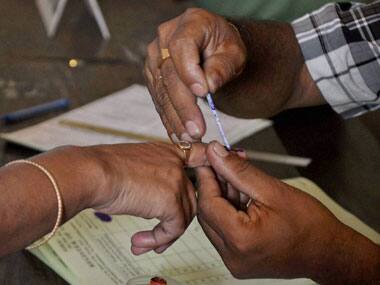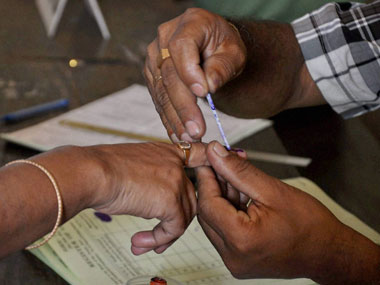Hyderabad: The existing first-past-the-post electoral system in India has outlived its utility, former chief election commissioner TS Krishnamurthy said, favouring proportional representation or candidates getting a minimum percentage of votes to get elected. As per the first-past-the-post electoral system, the candidate with the most votes in each constituency wins. [caption id=“attachment_4036287” align=“alignleft” width=“380”] Representational image. PTI[/caption] “It’s possible, why not? after all, the first-past-the-post (electoral) system which is in existence has outlived its utility because the person with one vote extra, with even 15 percent of the votes polled can get elected,” he told PTI when asked about his views on proportional representation. “Either proportional representation (based on the number of votes polled by political parties) or another method is that a person should have minimum 50 percent of the votes polled to get elected. “That 50 percent is a high figure. I would say initially 33 percent or 1/3 for the first five years. After five years, it must be 50 percent of the votes polled, only then he will be declared (elected) so that he does not represent a caste, or a community or linguistic group; he represents the constituency better,” Krishnamurthy said. Sharing his views on electoral reforms and cleaning up the system, he said in Palestine, 50 percent of the people are elected nationally and the remaining constituency-wise. In India, for example, most of the elections are held constituency-wise, where the caste, or the language or the community to which candidate belongs dominates, he said. “Suppose you can have at least 25 to 30 percent of our elected representatives on a national basis, if every Indian vote for a national leader, then at least this narrow outlook of legislators will disappear. It will improve the quality of democracy,” Krishnamurthy added.
Representational image. PTI[/caption] “It’s possible, why not? after all, the first-past-the-post (electoral) system which is in existence has outlived its utility because the person with one vote extra, with even 15 percent of the votes polled can get elected,” he told PTI when asked about his views on proportional representation. “Either proportional representation (based on the number of votes polled by political parties) or another method is that a person should have minimum 50 percent of the votes polled to get elected. “That 50 percent is a high figure. I would say initially 33 percent or 1/3 for the first five years. After five years, it must be 50 percent of the votes polled, only then he will be declared (elected) so that he does not represent a caste, or a community or linguistic group; he represents the constituency better,” Krishnamurthy said. Sharing his views on electoral reforms and cleaning up the system, he said in Palestine, 50 percent of the people are elected nationally and the remaining constituency-wise. In India, for example, most of the elections are held constituency-wise, where the caste, or the language or the community to which candidate belongs dominates, he said. “Suppose you can have at least 25 to 30 percent of our elected representatives on a national basis, if every Indian vote for a national leader, then at least this narrow outlook of legislators will disappear. It will improve the quality of democracy,” Krishnamurthy added.
Former CEC TS Krishnamurthy says first-past-the-post system outlived utility, favours proportional representation
Press Trust of India
• September 12, 2017, 18:51:21 IST
The existing first-past-the-post electoral system in India has outlived its utility, former CEC TS Krishnamurthy said, favouring proportional representation
Advertisement
)
End of Article